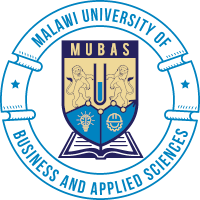The Executive Dean
School of Engineering
Associate Professor Burnet Mkandawire is an Electromechanical Engineer and an Associate Professor of Engineering (Electric Power and Energy Systems), mainly in: grid and off-grid system design, maintenance and refurbishment; application of Systems-thinking theory in power systems; and modelling lifecycle of engineering/physical assets by augmenting probabilistic techniques with stochastic inferences to optimise end-of-life treatment options.
Mkandawire holds a Doctorate Degree in Electrical Engineering (Power and Energy Systems) from University of KwaZulu-Natal (UKZN), Howard College Campus, Durban, South Africa; and a Master of Science Degree in Engineering (Electric Power and Energy Systems) also from the UKZN, Westville Campus, Durban. He also holds a Bachelor of Science Degree in Mechanical Engineering from University of Malawi and a number of postgraduate diplomas and certificates in Maintenance Engineering Management (from Augsburg University of Applied Sciences, Germany), Condition Based Maintenance (from Indian Institute for Production Management, Kansbahal, Orissa, India), Maintenance of Construction Machinery (from JICA-Tokyo, Japan), Climate System Analysis (from University of Cape Town - Climate Systems Analysis Group), and Teaching of Engineering in Technical Universities of Africa-Anglophone (from Ningbo Polytechnic, China).
Assoc. Prof. Mkandawire is a Professional Mechanical Engineer Registered by Malawi Engineering Institution (MEI) (PrEng. MEI), and a Member of the Institute of Electrical and Electronics Engineers (MIEEE) of the USA. Besides, he is a Selected Registered Engineer (SRE) appointed by the MEI Board to supervise graduate engineers in the process of their professional registration. Mkandawire served twice as Head of Mechanical Engineering from 2012 to 2013 and from 2016 to 2020, respectively. He also served as a Senator in the University of Malawi Senate from 2016 to 2022. Prior to joining the University, he had a short stint with the Malawi Ministry of Transport and Public Works - Plant and Vehicle Hire Organization - where he worked as Regional Mechanical Engineer for the Southern Region of Malawi and, as Acting Deputy National Director/Controller.
Assoc. Prof. Mkandawire’s research interests are: Electric Power and Energy Systems (generation scheduling; reliability analysis of generation, transmission and distribution systems), economic power dispatch, ancillary services, and Power Infrastructure Asset Management. He has also taught, published and supervised postgraduate-student research in these areas. In addition, he has taught the following courses at undergraduate level: Automobile Electrical and Electronic Systems, Distribution Networks and Machines, Power Economics and Trade, Energy Management and Audit, Computer Applications (MATLAB and LABVIEW Programming), Mechanical Science, Strength of Materials, Solid Mechanics, and Engineering and Society. He has been a reviewer of Electric Power Systems Research (EPSR) - Reliability Engineering and System Safety (RESS) Journal published in Switzerland; and IEEE Systems Journal published in the USA. From 2018 to date, he has served in the Doctoral Committee at University of Rwanda’s African Centre of Excellence in Energy for Sustainable Development (ACE-ESD), where he has also supervised PhD candidates who successfully defended their theses; and orally examined 11 PhD candidates. In addition, Assoc. Prof. Mkandawire has supervised postgraduate students at PhD and Masters (MSc/MPhil) level within Malawi University of Business and Applied Sciences. Furthermore, he served as an external examiner of PhD theses for University of KwaZulu-Natal, Masters Dissertation for Durban University of Technology, and undergraduate degree programmes at Malawi University of Science and Technology.
Assoc. Prof. Mkandawire has conducted over 74 industrial outreaches and consultancies for public and private sectors in Malawi and Mozambique, notably in the following areas/fields: energy-supply-options modelling, condition monitoring, energy auditing, Reliability Centred Maintenance (RCM), climate resilience building, automobile engineering, fleet management, operational risk assessment, hydraulics and pneumatics; and machine design, layout and maintenance.
